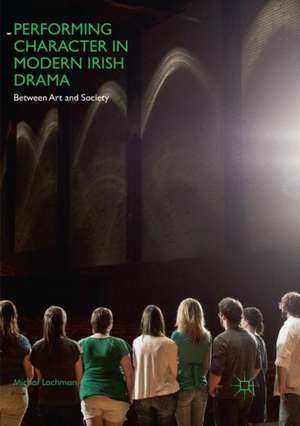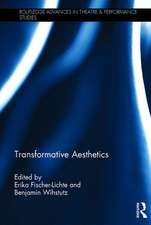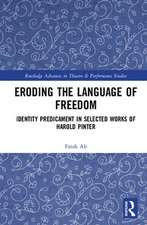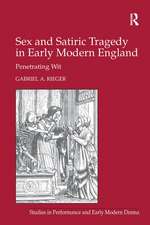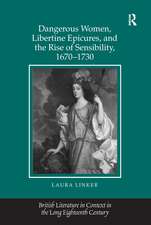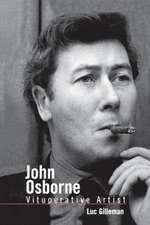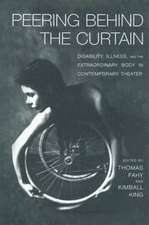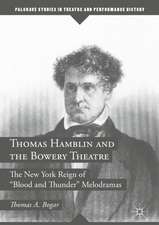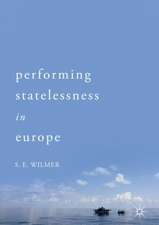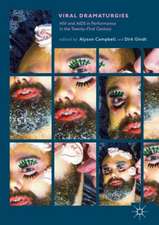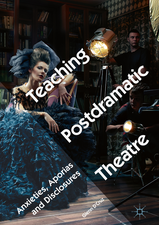Performing Character in Modern Irish Drama: Between Art and Society
Autor Michał Lachmanen Limba Engleză Paperback – 19 dec 2018
The human character is seen as a testing ground and battlefield for new ideas, for social philosophies, and for literary conventions through which each historical epoch has attempted to express its specific cultural and literary identity. In this context, Irish drama appears to be both part of the European literary tradition, engaging with its most contentious issues, and a field of resistance to some conventions from continental centres of avant-garde experimentation. Simultaneously, it follows artistic fashions and redefines them in its critical contribution to European artistic and theatrical diversity.
| Toate formatele și edițiile | Preț | Express |
|---|---|---|
| Paperback (1) | 731.10 lei 3-5 săpt. | |
| Springer International Publishing – 19 dec 2018 | 731.10 lei 3-5 săpt. | |
| Hardback (1) | 732.40 lei 3-5 săpt. | |
| Springer International Publishing – 5 iun 2018 | 732.40 lei 3-5 săpt. |
Preț: 731.10 lei
Preț vechi: 891.59 lei
-18% Nou
Puncte Express: 1097
Preț estimativ în valută:
139.94€ • 152.06$ • 117.63£
139.94€ • 152.06$ • 117.63£
Carte disponibilă
Livrare economică 31 martie-14 aprilie
Preluare comenzi: 021 569.72.76
Specificații
ISBN-13: 9783030095154
ISBN-10: 3030095150
Pagini: 312
Ilustrații: XV, 312 p.
Dimensiuni: 148 x 210 mm
Greutate: 0.54 kg
Ediția:Softcover reprint of the original 1st ed. 2018
Editura: Springer International Publishing
Colecția Palgrave Macmillan
Locul publicării:Cham, Switzerland
ISBN-10: 3030095150
Pagini: 312
Ilustrații: XV, 312 p.
Dimensiuni: 148 x 210 mm
Greutate: 0.54 kg
Ediția:Softcover reprint of the original 1st ed. 2018
Editura: Springer International Publishing
Colecția Palgrave Macmillan
Locul publicării:Cham, Switzerland
Cuprins
1 Introduction.-2 Social Man .-3 Linguistic Man.- Interactive Man.-Index
Notă biografică
Michał Lachman is Lecturer in English and Irish Drama at the Department of Drama, University of Lodz, Poland. His research interests include the history of twentieth-century British and Irish drama, literary theory and translation. He has published on Brian Friel, Martin McDonagh, Sarah Kane, Mark Ravenhill and Howard Barker, and translated Frank McGuinness’s and Christina Reid’s plays into Polish.
Textul de pe ultima copertă
This book is about the history of character in modern Irish drama. It traces the changing fortunes of the human self in a variety of major Irish plays across the twentieth century and the beginning of the new millennium. Through the analysis of dramatic protagonists created by such authors as Yeats, Synge, O’Casey, Friel and Murphy, and McGuinness and Walsh, it tracks the development of aesthetic and literary styles from modernism to more recent phenomena, from Celtic Revival to Celtic Tiger, and after.
The human character is seen as a testing ground and battlefield for new ideas, for social philosophies, and for literary conventions through which each historical epoch has attempted to express its specific cultural and literary identity. In this context, Irish drama appears to be both part of the European literary tradition, engaging with its most contentious issues, and a field of resistance to some conventions from continental centres of avant-garde experimentation. Simultaneously, it follows artistic fashions and redefines them in its critical contribution to European artistic and theatrical diversity.
Caracteristici
Situates Irish drama in the context of European drama and wider developments within the field of humanities Pursues a clear theme of the representation of the human self and its evolution through distinct historical periods Reflects the condition of Irish society in the context of political and philosophical changes of the twentieth and twenty-first centuries
